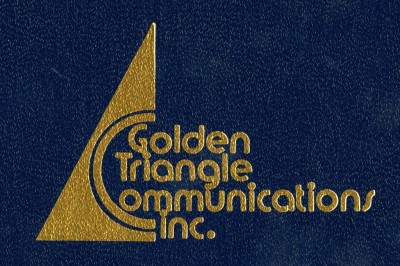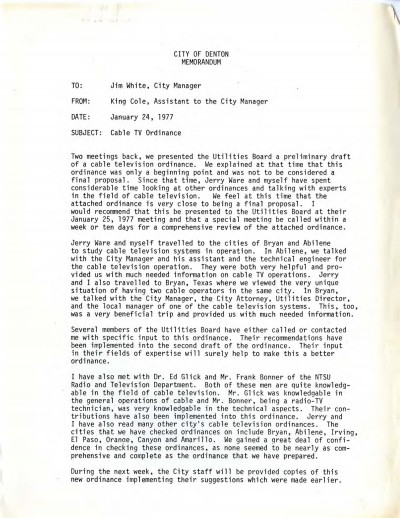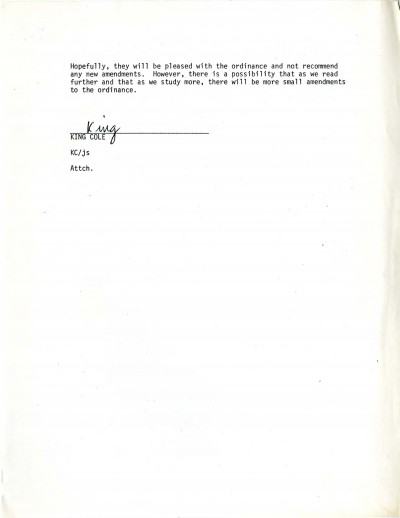
Golden Triangle Communications, Inc. Logo. Taken from “Cable Television Proposal Prepared for Denton, Texas.” Tom Harpool Collection, University of North Texas Special Collections.
In 2015, there aren’t many people who pay a cable bill anymore. Instead, they opt for streaming services that offer more flexibility with a much lower cost. However, it wasn’t long ago when people were so excited to get a clear picture on their TV’s, they’d eagerly pay the $8.50 a month for 30 channels. Cable television was an exciting new opportunity that promised great innovation in all areas of life–education, entertainment, news, shopping, and more.
$8.50–that was the estimated monthly fee established by the fledgling Golden Triangle Communications company in a proposal for CATV (Community Antenna Television) in Denton. The proposal promised stations that would entertain and educate Denton citizens, as well as inform them about community and government events. Two stations would even be given to the two universities in Denton-NTSU and TWU–to use for educational purposes. A total of 30 channels were planned, including a premium channel such as HBO and six stations held in reserve for future use. Golden Triangle Communications, Inc. also promised to pay the city of Denton 3% of the income made through monthly subscriptions.

Page one of City of Denton Memorandum, January 24, 1977. Tom Harpool Collection, University of North Texas Special Collections.
Community Antenna Television was first established in the 1940’s in areas where residents couldn’t receive television signals, usually due to topographical barriers like hills, mountains, or, in the case of New York City, skyscrapers. Neighbors would pitch in for an antenna that everyone could share to get a better picture into their homes. It became evident that people were willing to pay handsomely for cable, and CATV emerged as a commercial venture. The FCC stepped in to regulate CATV in 1966, claiming cable television to be under federal jurisdiction. In 1972, the FCC deregulated the industry, but left CATV with a set of rules to follow. The impact of these rules on Denton’s broadcast opportunities is detailed in the cable proposal.

Page two of City of Denton Memorandum, January 24, 1977. Tom Harpool Collection, University of North Texas Special Collections.
Golden Triangle Communications was established with strong ties with the Denton Publishing Company, the corporation that owned and operated the Denton Record-Chronicle. Riley Cross bought the Chronicle in 1945, and Mrs. Vivian Cross took the reigns after his passing in 1970. She also headed the new Golden Triangle Communications.
The Tom Harpool Collection in UNT’s Special Collections department offers literature written by both Golden Triangle Communications, Inc. and the Denton City Utility Board on this proposed cable ordinance. Tom Harpool was a graduate from North Texas State Teachers’ College in 1939, and he had great influence on Denton’s growth through involvement in civic organizations, including the School Board, Utilities Board, and Upper Trinity Regional Water District. Tom Harpool Middle School is named in his honor.
-by Alexandra Traxinger Schütz



Leave a Reply